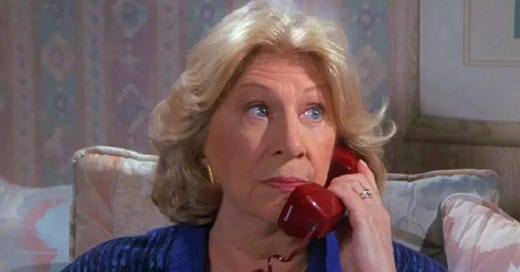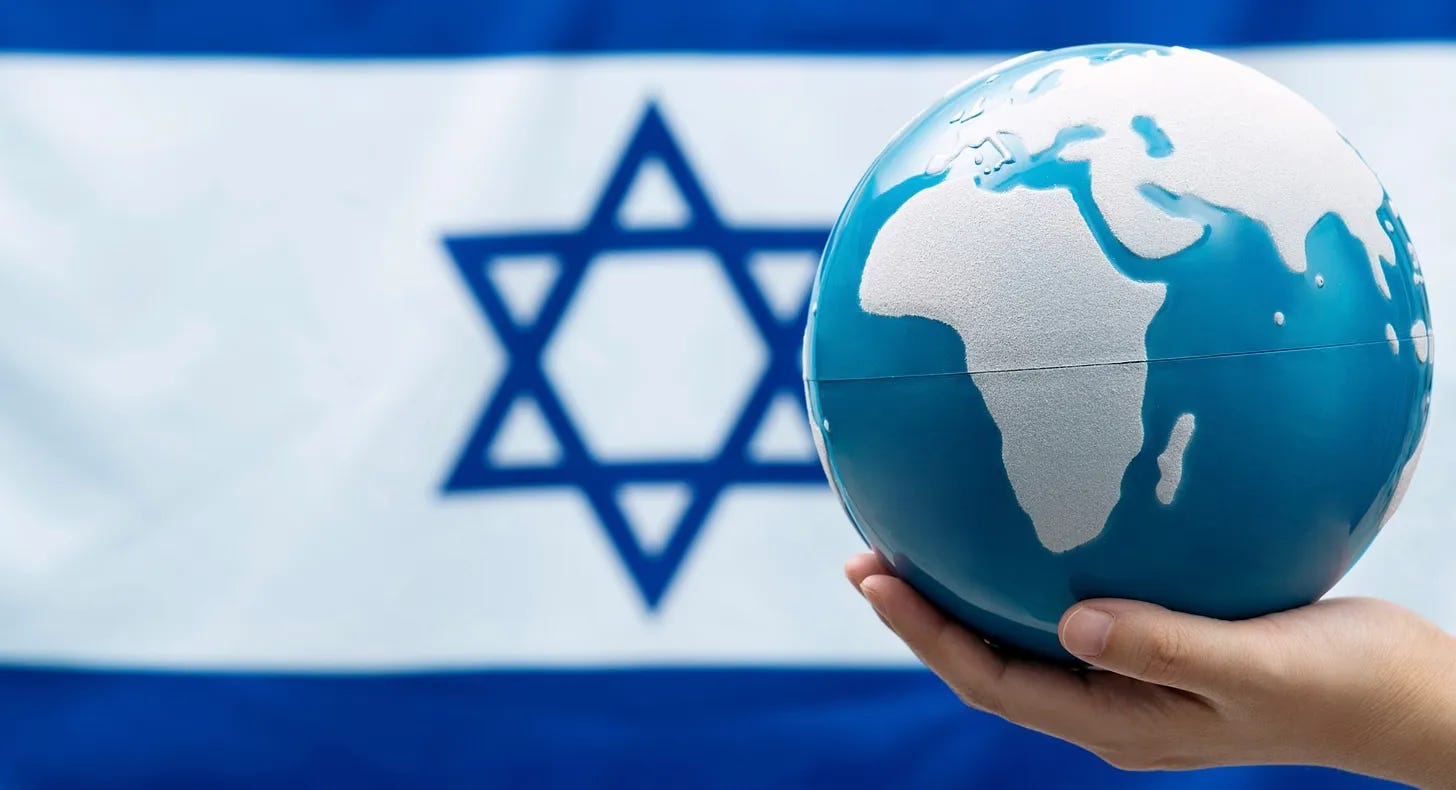The Jewish Mother Thing
"I find myself trying to not-align with the stereotype, but I’m frustrated."
By Allison Fishman Task
Quick. Think about the notion of “the Jewish mother.” In movies, in your life.
Really think. Close your eyes. What comes to mind?
For me, it’s a sound. I think of my own mother’s voice mockingly saying “the jewish mutha” with a real New Yorky accent on that last word.
What comes to your mind? My bet is that unless it’s your own truly beloved mother, aunt, or grandmother, it’s a caricature, a cartoon.
It’s not a pretty image. It’s Helen Seinfeld. It’s Fran Drescher’s Nanny. It’s an overbearing, short dumpling of a woman who is cutting her adult son’s meat at a kiddush lunch. It’s “no one is good enough for my little Mendel.” It’s stereotype after cliche after stereotype.
The Jewish mother stereotype is not technically Wonder Woman (but Gal Gadot is a Jewish mother). She sure ain’t Barbie (but Barbie’s creator, Ruth Handler, was a Jewish mother who created the doll for her daughter, Barbara). She’s not Mother Theresa (but Golda Meir was a Jewish mother).
She is a worn out, tired joke. And she is, if you will, a form of long-standing misogynistic antisemitism that we use against the members of our very own tribe.
Stay with me.
Judaism’s dance with misogyny has long roots, as do many patriarchal endeavors. Though Jewish women often worked, and worked outside the home (while looking after the kids and doing the homemaking), this was so that men could be freed up to study Torah — something not afforded to women at many levels of Judaism (and in some cases to this day).
My aunts were not given the opportunity to become b’nai mitzvot, though my father was. Ironically, they still study Torah and are active members of synagogues to this day, while he is unaffiliated. Women in the synagogues of my youth were not allowed to stand on the bimah, certainly no woman would wear a tallit or a yarmulke. Today my conservative synagogue has a female rabbi at the helm.
Times do change. We had an orange on our seder plate this year, and my son proudly explains why. And I believe that it’s time to take a good look at this Jewish mother caricature as well.
When I was in high school, a friend (who later became a rabbi) came for a visit. She looked around my home and said: “This is not the home of a Jewish mother. Your mother converted.” She was not wrong, but I was baffled. What was it about our home that told her that?
“Jews don’t have silk flowers. They don’t have mint green rugs, and dainty flower prints. They don’t have flouncy window treatments.” Now, she may have been seeing that our house reflected more of an Americana aesthetic than Eastern European (my mom was Welsh and French Canadian, and didn’t exactly cook with schmaltz). But there was something deeper there.
When I went to Cornell, I rarely told people that I was from Long Island or Jewish because there was deep misogyny afoot at that school (they called us “the ugliest girls in the Ivy league”, and that was amongst my gentler experiences of misogyny). Jewish girls from Long Island were synonymous with pampered, rich — you know where I’m going here — “J.A.P.s” (Jewish American Princesses).
From spoiled, materialistic JAPPy girls, we end up as loud, bossy women who have no boundaries.
And of course, the Jewish woman’s companion? Who will she inevitably wed? The adult male Jewish stereotype of a beaten, broken down, weak, unathletic man (I’d mention Woody Allen if that wasn’t such a loaded reference), with his aggressively bossy wife. The weak man and the shrew.
Who then becomes the Jewish mother, a meddling, in-everybody’s-business person who is impossible to live with (or without), who can’t be pleased, and who plays the guilt trip like Itzhak Perlman.
And today, I find myself cast in the real-life role of Jewish mother. I find myself trying to not-align with the stereotype — and I’m frustrated. Some of my best friends are Jewish mothers and they ROCK! They are CEOs, run animal welfare groups, are university professors, activists, photographers, rabbis, and more. Some make awesome shabbat meals, some make reservations (ba-dum-tss). Some put their kids in Hebrew school, some are allergic to synagogue.
These Jewish women are exactly the kind of woman I want to be. And am proud to call my friends. Way more Gal Gadot than the Nanny, and there's powerful irony in the activism work that Fran Drescher is doing now. She’s come full circle from stereotype to prototype. We can evolve with her.
And now, I know a solid group of Americans who have made trips to Israel since October 7, for the sole purpose of supporting the country. Everyone I know who has made the trip is a Jewish mother.
Jewish moms are people. We love our kids. We love your kids too. We care about education, inside and outside of the classroom. We are sexy and self-conscious and wise and goofy. We advocate. Sometimes we cook or play an instrument. We’re people, just like you, with the little extra of being Jewish, and female, for whatever that means and whatever we choose it to mean.
You’ve read this far, so do me this favor, okay? We Jewish people, we can do better than reducing half of ourselves down to this outdated cliche. Be like Fran, and advocate, this time for Jewish women. Look at who we really are, not the punch line we’ve been.
Also a small reminder - Mother’s Day is May 12. Put that on your calendar. Call your mom or someone else’s mom. I don’t care if they’re Jewish or not. Just show some love.
(This Jewish woman likes to plan and spread the love.)
ALLISON FISHMAN TASK is a life and career coach and the bestselling author of Personal (R)evolution.
From unpacking history and politics to navigating the nuances of family and personal relationships to finding the human angle on sports and entertainment — plus our unsparing take on what’s happening in the Jewish world — the canvas at JEWDICIOUS is limitless! JOIN US!!






WELL SAID, Allison.
Allison Task = Bold and Class.